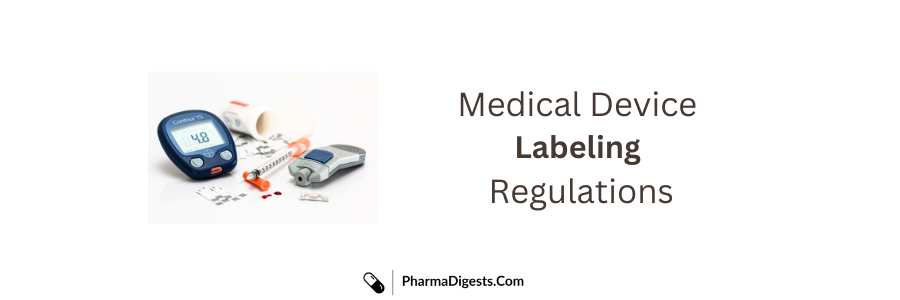Pharma Blog

Benefits of Pharma 4.0
Pharmaceutical manufacturers face many unique challenges in this remarkable era. While technological advancements have multiplied opportunities for process improvements, regulatory oversight has allowed adoption compared to other industries. There are stringent requirements for documentation, process validation, and data integrity to create an environment where compliance outweighs continuous improvement. Pharma 4.0 ... Read More

Top Trends of Pharma 4.0
Faster production The pharmaceutical industry is shifting from producing drugs for the masses to high-value treatments. Manufacturing life savingdrugs in low volumes complicates the manufacturing process as the latter is just as rigorous and time-consuming as the mass production workflows. Low volume production faces challenges because there are fewer batches ... Read More

Dietary Reference Intakes for Vitamin C (Ascorbic Acid)
Primary function: Antioxidant; enzyme cofactor for carnitine, collagen, neurotransmitter biosynthesis; modulates absorption, transport, storage of iron. Selected sources: Citrus fruits, sweet peppers, kiwifruit, broccoli, strawberries, brussels sprouts, cantaloupe. Dietary Reference Intake Vitamin C functions physiologically as a water-soluble antioxidant by virtue of its high reducing power. It is a cofactor ... Read More

Medical Device Labeling Regulations
Prominence and Conspicuousness: According to FDA regulations, all required information on medical device labels must be highly visible and easily understood. This is essential to ensure that users can access important information about the device when making a purchase. The failure of label information to meet these requirements can result ... Read More

Difference Between CBER and CDER
𝗖𝗕𝗘𝗥 (𝗖𝗲𝗻𝘁𝗲𝗿 𝗳𝗼𝗿 𝗕𝗶𝗼𝗹𝗼𝗴𝗶𝗰𝘀 𝗘𝘃𝗮𝗹𝘂𝗮𝘁𝗶𝗼𝗻 𝗮𝗻𝗱 𝗥𝗲𝘀𝗲𝗮𝗿𝗰𝗵) 𝗥𝗲𝗴𝘂𝗹𝗮𝘁𝗼𝗿𝘆 𝗔𝘂𝘁𝗵𝗼𝗿𝗶𝘁𝘆: CBER regulates biological products, which are complex substances derived from living organisms or their byproducts. These products include vaccines, blood products, gene therapies, tissues, and medical devices that contain biological components. 𝗥𝗲𝘃𝗶𝗲𝘄 𝗣𝗿𝗼𝗰𝗲𝘀𝘀: CBER reviews applications for Biologics License Applications (BLAs) ... Read More

Tips for Effective Pharmacovigilance Reporting of Adverse Events
As a pharmaceutical professionals, it’s our duty to ensure that any adverse events related to drug use are reported accurately and efficiently. Here are 10 essential tips to enhance the effectiveness of your Pharmacovigilance reporting: PROMPT REPORTING It’s crucial to report adverse events as soon as they are identified. Timely ... Read More

Estimated Time Frames for Obtaining FDA Authorization
𝗕𝗶𝗼𝗹𝗼𝗴𝗶𝗰𝘀 The approval timeline for a biologic can vary depending on the complexity of the product and the data required to support its safety and effectiveness. 𝗣𝗿𝗲-𝗜𝗡𝗗 𝗱𝗲𝘃𝗲𝗹𝗼𝗽𝗺𝗲𝗻𝘁: 1-2 years𝗜𝗡𝗗: 1-2 years𝗖𝗹𝗶𝗻𝗶𝗰𝗮𝗹 𝘁𝗿𝗶𝗮𝗹𝘀: 3-7 years𝗕𝗟𝗔 𝘀𝘂𝗯𝗺𝗶𝘀𝘀𝗶𝗼𝗻: 6 months𝗙𝗗𝗔 𝗿𝗲𝘃𝗶𝗲𝘄: 6-12 months𝗧𝗼𝘁𝗮𝗹 𝗮𝗽𝗽𝗿𝗼𝘃𝗮𝗹 𝘁𝗶𝗺𝗲: 5-10 years 𝗕𝗶𝗼𝘀𝗶𝗺𝗶𝗹𝗮𝗿𝘀 The approval timeline for ... Read More

Biological Filing Process to FDA
Biologic filing is the process of submitting an application to the USFDA to request approval for a new biologic product. Biologics are a type of medicine that is made from living organisms or their products. 𝗧𝘆𝗽𝗲𝘀 𝗼𝗳 𝗕𝗶𝗼𝗹𝗼𝗴𝗶𝗰 𝗙𝗶𝗹𝗶𝗻𝗴𝘀 𝗧𝗵𝗲𝗿𝗲 𝗮𝗿𝗲 𝘁𝘄𝗼 𝗺𝗮𝗶𝗻 𝘁𝘆𝗽𝗲𝘀 𝗼𝗳 𝗯𝗶𝗼𝗹𝗼𝗴𝗶𝗰 𝗳𝗶𝗹𝗶𝗻𝗴𝘀: 𝗧𝗵𝗲 𝗕𝗶𝗼𝗹𝗼𝗴𝗶𝗰𝘀 𝗟𝗶𝗰𝗲𝗻𝘀𝗲 ... Read More

Types of FDA Applications for Drugs and Biologics
The Electronic Common Technical Document (eCTD) is the standard, accepted electronic format for the following submission types: An eCTD publishing tool is recommended to automatically create the eCTD sequence folder and file structure. FDA does not recommend specific tool vendors, however, they can be located via internet search. For information ... Read More

Difference Between ICH and USFDA Guidelines
ICH and USFDA guidelines are two of the most important sets of regulations for the pharmaceutical industry. Both sets of guidelines aim to ensure the safety, efficacy, and quality of pharmaceutical products. However, there are some key differences between the two sets of guidelines in terms of their scope, jurisdiction, ... Read More

How to Prevent Medication Error?
A preventable event that may cause or lead to inappropriate medication use or patient harm while the medication is in the control of the health care professional or patient/consumer. Medication incidents can have a devastating impact on: What is a Near Miss? An event that could have resulted in unwanted ... Read More
